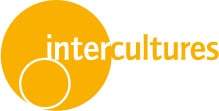
A People-Driven Mentality
It may seem ironic that at ZF (ZF Friedrichshafen AG), one of the worldwide leading suppliers of the automotive industry, “The focus in HR Development is no more on tools and instruments”. Ms. Anke Bergmann, HR Top Management/ Career Management Department, points out that the focus is instead “on leading people; on moving people; on people skills—[and] all these things in regards to the international context”. Re-focusing and re-structuring the “Motion & Mobility”[i] business at ZF then, rests squarely on the skill sets needed to navigate human relationships. Like any essential skill, people skills need continual testing and refinement.
In Search of the Right Facilitators
“We have to elect trainers very, very carefully”, says Ms. Bergmann. With an experienced understanding of the needs and requirements of their top management target group, ZF has hand-picked selection criteria and a process that is customized to leadership who is one level below the BoM (Board of Management). Personality and experience are prerequisites, and Ms. Bergmann is not sold by USP[ii] alone. More compelling is a trainer with content expertise and an understanding of the business context. “In my opinion [intercultures] is mastering these things very well, and the feedback is always very good”. In addition to post-training evaluations, Ms. Bergmann says that what she has “recognized that they [top management] feel safer in doing business with other cultures. And, they gain confidence in doing business together.” intercultures works to ensure that the mindset to which our participants transition is framed by a competence-based approach to intercultural learning.
Supporting Strategic Goals
When ZF (pronounced: Zed-Ef) acquired TRW Automotive of the U.S. in May 2015, there was no training request from above. In her career management role, Anke Bergmann proactively invited intercultures because “Our [departmental] task is to support the strategic goals of ZF, and intercultural training is a measure to support strategic goals.” In the new business world in which ZF operates, this Top Talent-targeted HR team recognized a “great need” to respond to the less-than-obvious differences between archetypical German and U.S. American styles of working better globally.
A Platform for Exchange
ZF VPs have adopted intercultures’ trainings as a platform for exchange. They attend voluntarily, and arrive with particular intercultural challenges in mind. With a global understanding of the business at hand, intercultures moderates discussion and guides leadership to solutions.
It Starts at the Very Start
Meanwhile, at their location in Marysville, Michigan, ZF is advertising a similar people-centered ethic at the very start of their Talent “production chain”. On the company website, you will see that in addition to an Accounting degree and SAP experience, for example, the successful candidate for the open Accountant position will be “accustomed to a multi-cultural global workplace” and possess “strong interpersonal, facilitation and organizational skills”. The professional who earns the open Production Supervisor position will “lead people and get results through others” and “balance and achieve positive results in…employee relations”. The numbers that balance the bottom line of the company’s people-driven operation are included at the bottom of their webpage: ZF has about 230 production locations in 40 countries, and 137,000 employees. One of the largest automotive suppliers worldwide, ZF reported sales of €35.2 billion in 2016.
Building „the Network”
If innovation is a change process as Anke Bergmann says, people are certainly the right vehicle in which to invest. If you have participated in one of intercultures’ trainings, you may have heard our theory on what we consider to be the most contemporary manifestation of management models: the Network, dependent upon attractive work relationships between people[iii]. Beyond auto parts, Ms. Bergman helps us understand how ZF is building their own Network model. “We have to work in another way,” she says. “We have to think in another way and we have to become faster—with an even stronger customer focus.”
intercultures thanks Ms. Anke Bergmann of ZF’s Top Management Corporate HR department for her participation in this interview.
Czekamy na Twój kontakt!
[ii] “USP” stands for “unique selling proposition”.[iii] The Network management model is predated by the Machine model that came with the Industrial Age and viewed people as “cogs in a wheel”. The Machine model is preceded by the original Family model of business management through patriarchy and familial obligation.
The above article was included in our June 2017 quarterly E-Newsletter.
Photo credit title picture: ZF.
